Tony Abbott enters row with Paul Keating over relationship between Australia and China
Tony Abbott has said Australia has “put too many eggs into the China basket” as Paul Keating criticised the nation’s attitude toward the communist country.
NSW
Don't miss out on the headlines from NSW. Followed categories will be added to My News.
Tony Abbott has said Australia has “put too many eggs into the China basket” at the expense of developing stronger ties with India.
His comments were made in a speech on a free and open Indo-Pacific in New Delhi overnight, and days after two MPs were banned from visiting China after criticising Beijing.
The former prime minister mapped out a vision of India as a democratic superpower alongside the US in the speech, stating it would create a “more free, more open (and) more prosperous” world.
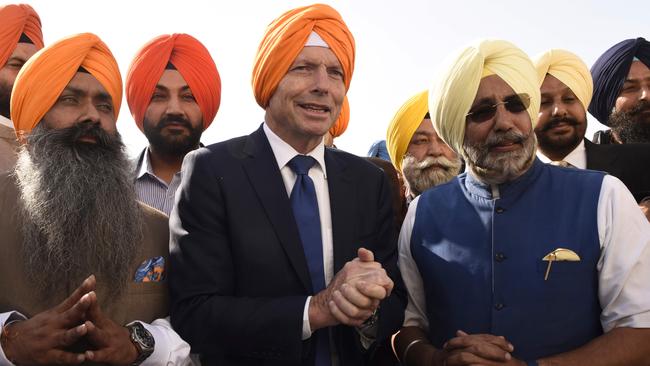
Mr Abbott said the Australia-India relationship was not better developed as a result of years of “intermittent official drive”, benign neglect and a “passion for China”.
He added Australia’s relations with China should not rise above a “cold peace” unless the country stops “bullying” its neighbours.
“Why would anyone, especially such a friend of India, be so sure India won’t be the next China, economically?’’ Mr Abbott said.
“Why should Australian officials think that what one country of a billion people could achieve under the dictatorship of the proletariat is impossible in another that has the blessings of democracy, the rule of law and the English language?
“Unless, of course, they’re closet admirers of a command-market economy, regard the Chinese as somehow superior to everyone else, or don’t want to admit that Australia might have put too many eggs into the China basket.”
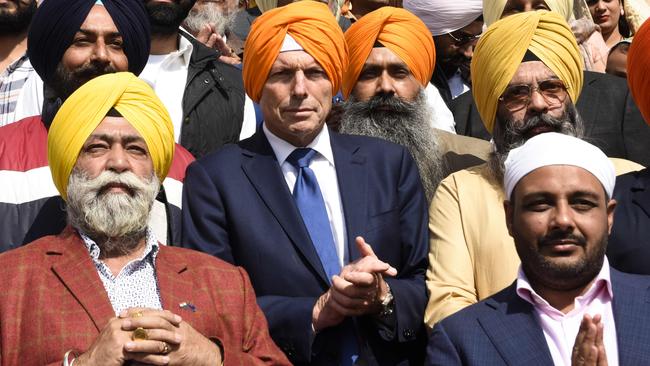
Mr Abbott, – who revived the four-way security talks between Australia, India, Hapan and the US during his time as prime minister – said he hoped Prime Minister Scott Morrison would revive stalled free-trade agreement talks with India in his visit to the country next year.
“In 40 years, India’s GDP has more than quadrupled; it’s the world’s fastest-growing big economy for the past five years; and more than 500 million Indians have uncensored, unmonitored smartphones connecting them to the formal market economy,” he said.
MORE NEWS
Police fear serial rapists are using dating apps
Cricket prankster cops crazy ban
Feral pig bounty call amid swine fever fears
“A partnership between democracies such as India and Australia should be far easier to build than one between Australia (say) and a one-party communist state like China. Perhaps this is why the relationship between Australia and India, until recently, has largely been taken for granted.”
However, former prime minister Paul Keating was scathing of Australia’s attitude toward China in an extraordinary speech in Sydney yesterday, claiming it was unrealistic to expect the Asian powerhouse to become more democratic as it developed.
“Unfortunately the debate in Australia has markedly degenerated in respect of … China,” he said.
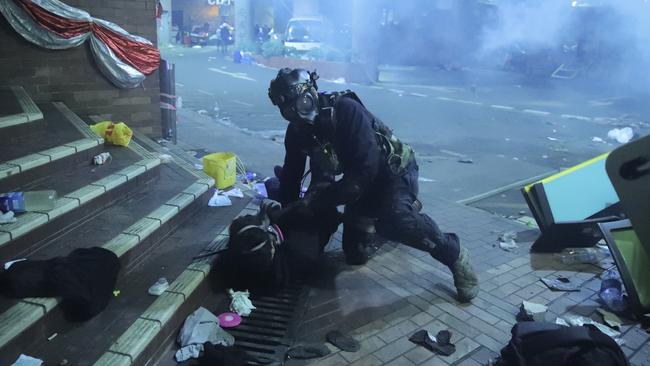
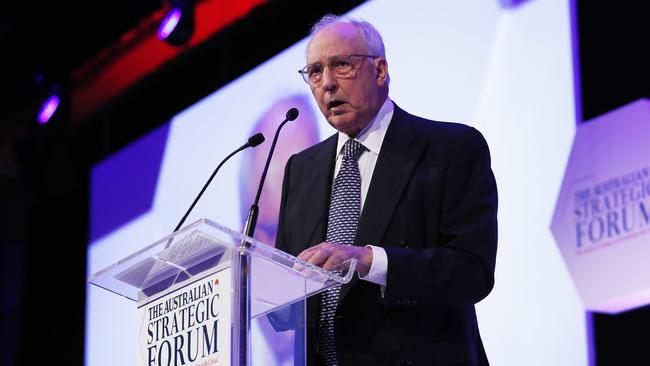
“The whispered word communism of old, is now being replaced by the word China.
“Well god help us if we are limited or slated to deal only with democracies.”
Labor leader Anthony Albanese said Australia should deal with the situation “diplomatically and respectfully while standing up for our view on human rights”.
“There are genuine and legitimate concerns about human rights in China – particularly what we hear about the treatment of the Uighurs and … what is happening in Hong Kong.”
Mr Morrison yesterday added he was “very disappointed” about the decision to deny Liberal MPs Andrew Hastie and James Paterson – who are tough critics of the Chinese Communist Party’s human rights record and foreign interference – visas for a study tour to China, but defended Australia’s relationship with the country.
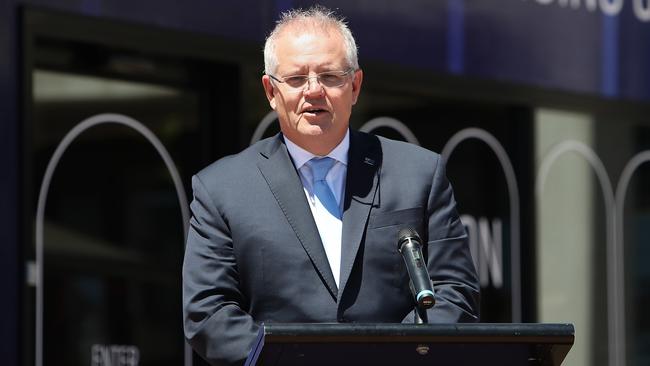
“We’re not China and China’s not Australia. We are not looking to take up their system, they are not looking to take up ours,” he said.
“We respect each others’ sovereignty and Australia will always be Australia.”
Australian Strategic Policy Institute executive director Peter Jennings said banning Mr Hastie and Mr Paterson was “very shortsighted” but highlighted how “intolerant” of any criticism Beijing had become.
“I think what we’re seeing is the rise of a very nationalist and aggressive China, determined to try and throw its weight around … which is going to be very uncomfortable for Australia,” he said.
Mr Jennings said there would be “difficult days ahead” for Australia’s relationship with China but welcomed Mr Morrison’s comments defending the nation’s interests.
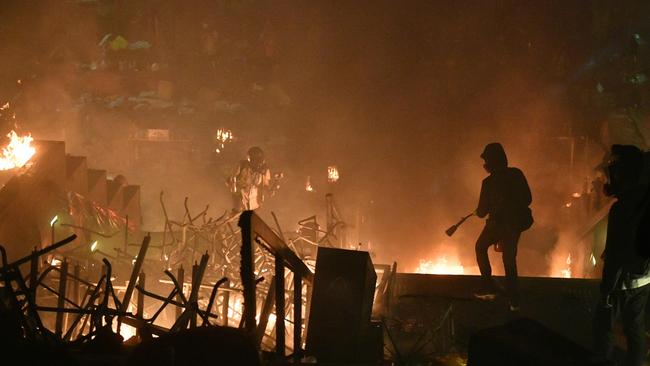
“Australia has tried to turn a blind eye because of our economic connections, but when you’ve got a million people in detention camps that’s starting to look like a type of totalitarianism that cannot be allowed in the 21st Century,” he said.
It comes as The New York Times published internal Chinese communist documents exposing the country’s crackdown on Uighurs and other minority groups.
The leak included a command from top officials to “round up” Muslim minorities and a direct call out from President Xi Jinping for “a period of painful, interventionary treatment” showing “absolutely no mercy”.
Originally published as Tony Abbott enters row with Paul Keating over relationship between Australia and China
